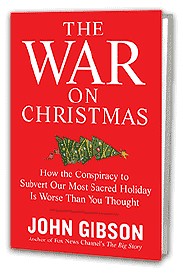Previously, on December 11, 2005, refWrite carried the Intro to an Amnesty International document that pinpoints the widespread religious oppression of persons belonging faith-groups outside the mainstream of Eritrea-approved religions, both Christian and Muslim. We continue this series because of the specifics of the Eritrean situation, in which a member body of the World Council of Churches is implicated by its laity in a system violently repressive of specific other religious communities and supposedly faviouring the WCC member body.
The live-linked headline of this blog entry takes the reader to a new development in which an international court decision has ruled Eritrea to have started its war with Ethiopia in the 1990s, important because hostilities persist to the moment and have become more intense in recent days.
Eritrea broke law in border war
Eritrea triggered the border war with Ethiopia when it attacked its neighbour in May 1998, an international commission in the Hague has ruled. ¶ Since there was no armed attack against Eritrea, its attack on Ethiopia could not be justified as lawful self-defence under the United Nations charter. ¶ Eritrea is now liable to compensate Ethiopia for damages caused, it said. ¶ Tensions over the border have risen in recent months with both countries sending more troops there. ¶ Last week, Western UN staff in Eritrea left at the request of Eritrea.
What the connection may be between religious repression in Eritrea, its previous and current warlike actions, and the possibility of lay-Christian warlordism abusing even Eritrea's most ancient Christian Church, is a possible syndrome most important to monitor. Thanks to
Amnesty International (sadly, not always a reliable source) for this good work. - Politicarp
2. Religions in Eritrea - background to arrestsEritrea has a highly religious population, with some 98% of its 3.7 million people belonging to a long-established branch of a major world religion. Most Eritreans actively practice their faith, with only a small proportion being merely nominal members of their faith, and even fewer describing themselves as being of no faith at all. The Orthodox Church and Islam have been rooted in the region since the fourth and seventh centuries respectively. These two religions are practised by some 90% of the population, although there are no reliable statistics on which is the larger group. For historical reasons and due to its central position in the former Ethiopian Empire, the Orthodox Church is socially predominant.
Of the other Christian denominations, 5% of the population are Roman Catholics. About 2% are Protestants, of whom about half belong to a Lutheran church, and about half to smaller religious movements, such as the Jehovah's Witnesses and at least 36 evangelical and pentecostal churches. There are a few members of the Baha'i, Jewish, Hindu and Buddhist religions in the larger urban centres. Traditional religious practices continue among some members of Eritrea's nine ethnic groups (or "nationalities") in remoter areas. The central highlands and the majority Tigrinya ethnic group, are predominantly Orthodox, while the lowlands are predominantly Muslim, although most towns and rural areas contain places of worship and members of both of these religions.
All religions in Eritrea are nationally - organized faiths. Some are affiliated to international bodies. The four main "officially recognized" religions are:
1. The
Eritrean Orthodox Church, which separated after independence from the Ethiopian Orthodox Church, part of the worldwide Coptic Orthodox Church of the eastern rite, and a member of the World Council of Churches.
2. Islam of the Sunni rite, represented by the
Muslim Council of Eritrea with mosques throughout the country and predominant in the less developed eastern and western lowlands.
3. The
Eritrean Catholic Church, part of the worldwide Roman Catholic movement.
4. The
Evangelical Church of Eritrea (also known as the
Lutheran Church, and before independence linked to the Ethiopian Evangelical Mekane Yesus Church), part of the Lutheran World Federation and a member of the World Council of Churches.
Other religious groups, which are not officially recognized and are not allowed to worship openly, comprise the
Jehovah's Witnesses, the
Baha'i religion, and an increasing diversity of evangelical, pentecostal, charismatic or "born again" Protestant churches, which are collectively called "
evangelicals" (or sometimes "
pentes", a pejorative term). These "minority religious groups"(6) had recognized places of worship in many towns until these were all closed down by the government in 2002.
Some of the Eritrean churches, as well as several international Christian and Muslim charities and non-governmental organizations (NGOs), run relief and humanitarian projects, although under government restrictions and subject to the
May 2005 NGO Proclamation.
Inter-faith relations in Eritrea since independence have generally been good, with a history of tolerance between Christians and Muslims at both the national official level and in local communities. Christian and Muslim holidays are officially celebrated throughout Eritrea.
There is, however, some social intolerance from members of the main churches toward the Jehovah's Witnesses and evangelical churches. Faith relations have also been affected by the political orientations of the Eritrean independence war, and the conflict between the Marxist-Leninist
Eritrean People's Liberation Front (EPLF), which formed the independence government, and the Muslim-oriented
Eritrean Liberation Front (ELF) and other linked groups, to whom the EPLF offered no reconciliation at independence. The post-independence exile opposition coalition contains Islamist groups, and consequently the government has frequently suspected Muslims in Eritrea of links with Sudan-based armed opposition groups.
Under Ethiopian rule before independence, all religions were heavily restricted by the marxist-leninist Dergue military government. In Ethiopia in 1979 the Patriarch of the Orthodox Church, Abune Tewoflos, and the Reverend Gudina Tumsa, head of the Ethiopian Evangelical Mekane Yesus Church, "disappeared" from detention and were extra-judicially executed by government agents. Members of Dergue detained in 1991 are currently still on trial in Addis Ababa for these and other crimes. In the 1980s there was also a fierce campaign of religious persecution against religious groups with perceived "imperialist" connections, such as
US-connected evangelical and Baptist churches and the
Beta Israel religion, also known as Ethiopian Jews or Falashas, as well as discrimination against Muslims.
The
EPLF, while it was fighting the Ethiopian government for Eritrean independence, tolerated the main faiths but not the minority religions, and religious persecution was reportedly sometimes an issue. After independence, the EPLF government recognized the main four religions in state functions. Jehovah's Witnesses became a target of active repression in 1994, as a result of their opposition to military service when it was introduced, and their non-participation in the 1993 independence referendum.
In 1995 restrictions were placed on all faiths by
Proclamation Religious Organizations no.73/1995, which prohibited them from receiving international funds or engaging in political activities. Religious organizations were required to register with the authorities and provide details of their membership and assets, including foreign contacts and foreign funding. The four main religions were quickly registered but registration of minority religious groups was postponed. Since then, there has been a rapid growth of evangelical churches in Eritrea.
This has often been a source of tension between them and the three main Christian churches, which were losing members to them. They had different doctrines, forms of worship and weddings, and "fellowship" for prayer and study. They often proselytized (sought converts) or expressed their faith in new, "charismatic" ways in public places, which attracted some disapproval from members of the main religious groups - Orthodox, Catholic, Lutheran and Islam.
Watch for Part III of Amnesty's document on Eriteria; watch also for news of the war footing that Eritrea and Ethiopia have placed on their militaries and societies.

![+ more all [notes&ye(a)s(t)s]](http://static.flickr.com/38/78847462_ab89bdc9dc.jpg)






